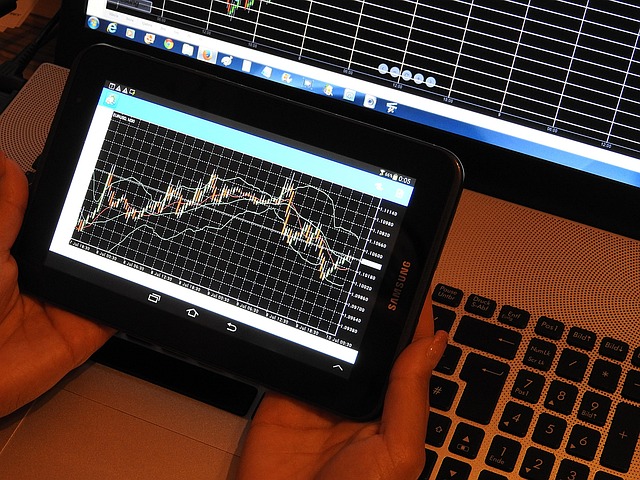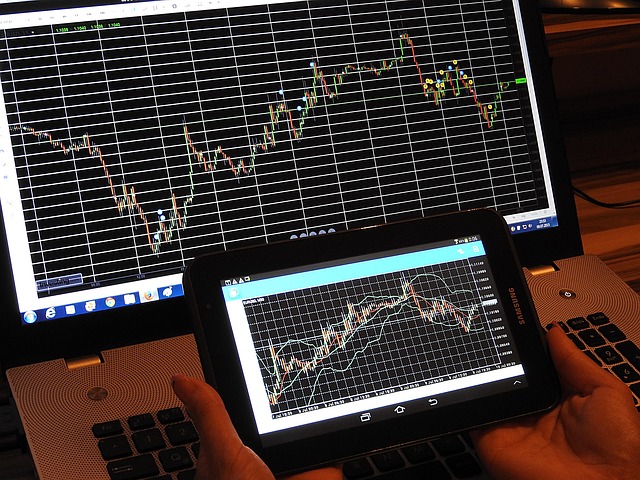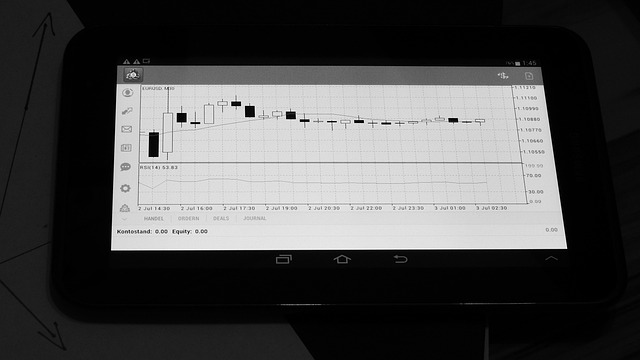Is Forex Trading Halal in Shia Islam? A Comprehensive Analysis
Author: Jameson Richman Expert
Published On: 2025-08-12
Prepared by Jameson Richman and our team of experts with over a decade of experience in cryptocurrency and digital asset analysis. Learn more about us.
Forex trading, or foreign exchange trading, has become a fundamental activity within the global financial landscape, involving the buying and selling of currencies with the aim of profiting from fluctuations in exchange rates. Its high liquidity, 24-hour operation across global markets, and opportunities for leverage have attracted millions of traders worldwide, including many Muslims concerned about ensuring their financial activities align with Islamic ethical standards. For Shia Muslims, whose jurisprudence (fiqh) encompasses specific interpretations and nuanced rulings, understanding whether forex trading is permissible (halal) or forbidden (haram) requires a detailed examination rooted in Islamic legal theory (Shariah). This article offers an in-depth exploration of the religious, ethical, and practical considerations relevant to forex trading from the perspective of Shia Islam. It aims to provide traders with comprehensive knowledge to navigate the markets in a manner consistent with their faith while avoiding inadvertent violations of Islamic principles.

Understanding Forex Trading and Its Significance for Shia Muslims
Forex trading involves exchanging one currency for another, typically with the goal of earning profit from the fluctuations in currency prices over short or long periods. This activity primarily takes place in over-the-counter (OTC) markets, which operate 24 hours a day across major financial centers such as London, New York, Tokyo, and Dubai. Traders can participate in various types of transactions, including spot trades, futures contracts, options, and leveraged positions. The high liquidity and accessibility of these markets make forex trading an attractive avenue for wealth accumulation and diversification.
From an Islamic standpoint, all financial engagements must adhere to core principles derived from the Qur'an and Sunnah, notably the prohibition of riba (interest), gharar (excessive uncertainty), and maysir (gambling). These principles are interpreted by scholars to ensure that financial dealings promote fairness, transparency, and economic justice. Given that forex markets often involve leverage, rollover interests (swap fees), and speculative behavior, many Muslims, including Shia traders, seek clarity on how to engage in forex trading without contravening Islamic law. Some opt for Islamic finance instruments or accounts explicitly designed to comply with Shariah principles, aiming to eliminate elements of riba and excessive uncertainty.
Fundamental Islamic Principles Impacting Financial Transactions in Shia Islam
Shia jurisprudence emphasizes justice ('adl), fairness, transparency, and the avoidance of exploitation in all economic activities. Understanding these principles is crucial when evaluating forex trading activities. The key Islamic forbiddances relevant to financial transactions include:
- Riba (Interest): Any guaranteed return or excess—such as interest paid or received—is strictly prohibited. This includes rollover interest, swap fees, and other charges that resemble interest. Engaging in transactions that involve riba risks rendering the activity haram.
- Gharar (Excessive Uncertainty): Transactions characterized by ambiguity, excessive speculation, or highly unpredictable outcomes are considered unjust. To be permissible, transactions should have clear terms, and risk should be balanced and well-understood by both parties.
- Maysir (Gambling): Activities that resemble gambling, where profits are derived purely from chance rather than underlying economic activity, are deemed haram. This includes high-leverage trades driven solely by speculation without real economic backing.
Furthermore, transactions should be based on mutual consent ('ijab and qabul), with explicit, transparent terms, and involve real economic substance—meaning actual transfer of ownership and tangible exchange rather than mere contractual speculation. Avoidance of manipulative practices, insider trading, and exploitation sustains the ethical integrity of financial dealings in line with Shia principles.
Is Forex Trading Permissible (Halal) in Shia Islam? An In-Depth Perspective
The permissibility of forex trading within Shia jurisprudence hinges upon the nature of each specific transaction and its compliance with Islamic principles outlined above. Based on these standards, we can analyze various scenarios often encountered by traders to determine whether they are permissible or forbidden:
Permissible Scenarios:
- Spot Transactions (Immediate Settlement): Conducting currency exchanges that settle immediately—preferably within the same day—can be considered permissible when they are free from interest, gharar, and excessive speculation. Such transactions resemble the traditional Islamic view of real economic exchange, akin to barter or direct trade, emphasizing honesty and tangible transfer.
- Transparent Economic Exchanges with Clear Terms: When traders engage in mutually agreed-upon currency swaps with explicit, fair terms, ensuring no element of gambling, excessive risk, or ambiguity, these can be deemed permissible. Transparency and explicit consent are key.
Prohibited Practices:
- Margin Trading and Leverage: Leveraged trading involves borrowing funds to amplify gains, but it also introduces interest charges and significant risk. Since leverage often involves rollover interest (swap rates), which may be equivalent to riba, such trading is generally considered haram unless explicitly structured within Islamic finance standards that avoid interest.
- Swap or Rollover Fees: These charges, often representing interest for holding positions overnight, conflict with the prohibition of riba unless the broker offers Islamic swap-free accounts, which eliminate such fees in compliance with Shariah.
- Speculative and Gambling-like Activity: Engaging in high-risk trades driven solely by chance, with no underlying economic rationale, resembles gambling (maysir) and is thus considered haram. This includes over-leveraged positions with no real economic substance.

Guidelines and Best Practices for Shia-Compliant Forex Trading
To ensure forex trading aligns with Shia Islamic principles, traders should adopt the following best practices:
- Utilize Islamic (Swap-Free) Accounts: Many brokers now offer Islamic accounts that prohibit rollover interest and speculative re-investments, thereby avoiding riba. Choosing such accounts is fundamental for compliance.
- Avoid Leverage and Margin Trading: Engaging in unleveraged trades minimizes exposure to interest charges and gharar. If leverage is used, it should be within permissible limits or structured to avoid interest, which is rare and complex. Most scholars recommend avoiding leverage altogether.
- Prioritize Real Economic Transactions: Focus on genuine currency exchanges with mutual consent and explicit terms, emphasizing transparency, honesty, and fairness. Avoid engaging in purely speculative trades that lack economic backing.
- Consult Qualified Islamic Scholars: Regular guidance from Muftis or qualified Shia Islamic scholars helps ensure trading practices remain within the bounds of Islamic law, especially with evolving financial instruments and platforms.
- Adopt Ethical and Socially Responsible Strategies: Steer clear of insider trading, market manipulation, or exploitative practices. Upholding honesty and fairness aligns with Islamic values and fosters trust within the marketplace.
Platforms Supporting Shia-Friendly Forex Trading
Recognizing the importance of compliance with Islamic law, several online trading platforms now offer Islamic (swap-free) accounts with features designed to eliminate interest charges and reduce gharar. These platforms aim to facilitate ethical trading for Muslim traders, including Shia communities. Examples include:
- Binance — Provides Islamic accounts with crypto and forex options adhering to Shariah, including swap-free features.
- MEXC — Offers swap-free accounts suitable for Shia traders, with transparent fee structures and compliance measures.
- Bitget — Features Islamic trading accounts that prohibit rollover interest and promote ethical practices.
- Bybit — Suitable for traders seeking interest-free, transparent trading environments with high liquidity and compliance options.
For detailed guidance on fee structures, risk management, and copy trading compatible with Islamic ethics, consult specialized resources such as this comprehensive guide and overview of copy trading platforms.
Legal, Ethical, and Social Responsibilities
Beyond religious compliance, traders must adhere to the legal frameworks governing their jurisdiction. This includes avoiding fraudulent schemes, false promises of guaranteed profits, insider trading, and market manipulation—all of which violate both Islamic ethics and national laws. Ethical trading encompasses promoting transparency, honesty, and social responsibility. Respecting market integrity and ensuring fair treatment of all participants are vital components of Islamic economic ethics. Resources such as this guide offer additional insights into ethical trading practices aligned with Shia values.

Conclusion: Navigating Toward Halal Forex Trading in Shia Islam
In summary, forex trading can be made permissible in Shia Islam if conducted with strict adherence to Islamic principles—particularly avoiding riba, gharar, and gambling-like speculation. Fundamental practices include utilizing Islamic swap-free accounts, avoiding leverage, and grounding transactions in genuine economic exchange with clear terms and mutual consent. Regular consultation with qualified Islamic scholars or Muftis is crucial, especially when dealing with complex financial instruments or new products. By aligning trading strategies with Islamic ethics, traders not only fulfill their religious obligations but also contribute to creating a more just, transparent, and ethical financial environment. This approach fosters economic activity that respects spiritual commitments while promoting fairness and social responsibility.
To deepen your understanding of compliance, fee structures, and ethical trading practices in accordance with Shia law, explore resources such as this detailed resource.